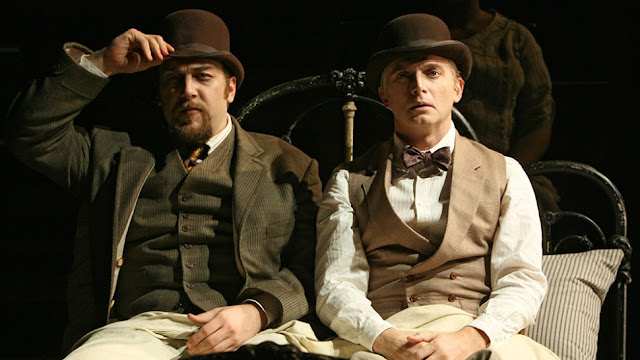(All historical background is from Look I Made A Hat, by Stephen Sondheim) Circa 1953, Stephen Sondheim took an interest in a book by Alva Johnston entitled The Legendary Mizners, a biography of brothers Addison and Wilson Mizner, an architect and con man respectively (among other things) who caused the Florida real estate crash of 1925/26. Sort of kind of maybe. It's all pretty sensationalized, but historical accuracy is of no concern for a theatrician. Sondheim attempted to obtain the rights to adapt the book into a musical, but was beaten to the punch by David Merrick and Irving Berlin. A few years later, while working on Gypsy (so, circa 1959), the Mizner brothers musical had not come to fruition, and Sondheim asked Merrick what had happened to it. It turns out that everyone involved lost interest, and Merrick had let his option on the book lapse. Between 1960 and 1990, Stephen Sondheim was pretty much continuously working on other projects. In 1993, having just ...


